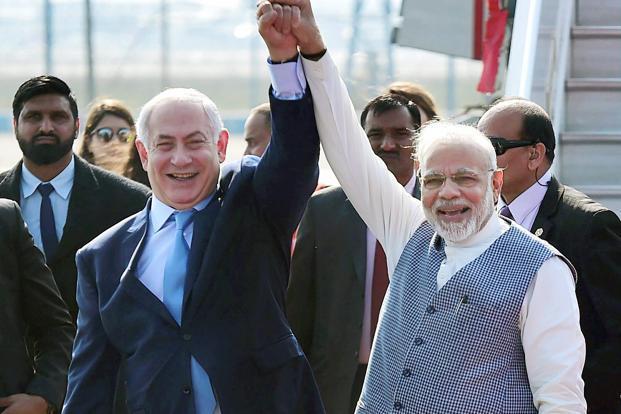In what can be described as a historic shift in India’s foreign policy, India has voted in support of Israel at the United Nation’s Economic and Social Council (ECOSOC). India voted against the Palestinian human rights organization named ‘Shahed’ to deny the body observer status at the UN’s Economic and Social Council (ECOSOC). “This is a good sign… India was the first country to support us amongst the Asia group, so we are very happy,” said Maya Kadosh, deputy chief of mission at the Israel embassy in India. Kadosh told The Print, “This is the first time Israel had moved the proposal to reject the request made by ‘Shahed’ to grant it an observer status.”
For decades India supported the two-nation theory and stood up for the cause of independent Palestine. However, the Modi government has changed its stance. The country voted in favor of Israel along with the US, France, Germany, Japan, UK, South Korea and Canada while China, Russia, Saudi Arabia, Pakistan supported the Palestinian cause. The proposal to grant observer status to ‘Shahed’ was rejected by 28-14 vote.
For decades, India had been supporting the two-nation theory looking at Israel and Palestine as separate and independent entities. However, it seems that India’s diplomatic policy no longer supports this delusional stance.
Till last year itself, the Indian foreign policy seemed to be following the trend of not voting against Palestine at International bodies. India had voted in favour of a United Nations General Assembly (UNGA) resolution condemning Israel for “excessive” use of force against Palestine citizens in Gaza. More shockingly, India abstained on a US-backed amendment that proposed to also condemn violence by Hamas.
Traditionally, India’s policy towards Israel and Palestine was guided by India’s domestic political compulsions. Israel undoubtedly emerged as a major ally, but successive governments were reluctant to openly favour Israel over Palestine. The fear of backlash from minority vote banks forced the successive governments not to take a strong stance on the issue. Therefore, the policy of hyphenating Israel-Palestine followed. In fact, during the days of the UPA government, a soft stance towards Palestine was clearly visible. On the death of Palestinian Liberation Organisation Chairman, Yasser Arafat, the then PM Manmohan Singh went on to describe Arafat as a “patriot and friend” of India. He had also said, “His life symbolises the struggle of the Palestinian people in their quest for a State and a homeland.”
Former PM Manmohan Singh’s media statement during the State visit of the Palestinian President further highlights how India’s foreign policy was somewhat tilted in favour of the two nation theory. The statement read, “Support for the Palestinian cause has been a cornerstone of India’s foreign policy. During our meeting, I reiterated India’s firm support for the struggle of the Palestinian people to achieve a sovereign, independent, viable and united state of Palestine with East Jerusalem as its capital, living within secure and recognized borders, side by side and at peace with Israel. India had played an active role in supporting the efforts of the State of Palestine to secure full member status at UNESCO. We will continue to support Palestine’s bid for full and equal membership of the United Nations.”
While the then UPA government was clearly pandering to Palestine on account of domestic political scenarios and the intention of appeasing the minority vote banks, other so-called secular parties like the CPM were only pressurising it further to take up an even more aggressive stance and break ties with Israel.
The Modi government seems to have been unsuccessful in getting rid of the policy of hyphenating Israel-Palestine relations. However, having returned with a staggering majority in the 2019 Lok Sabha polls, the Modi government seems to have taken the first historic step towards demolishing the delusional policy towards Israel and Palestine and this has officially kicked off the process of de-hyphenating Israel-Palestine relations.
The Modi government never tried to indulge in minority appeasement nor did it get a sizeable share of the minority vote. And therefore, the present government is not bound by the political compulsions which had coerced governments in the past to support the two-nation theory. This is suggestive of the fact that the present government which is already in its second term and whose policy vision has already been vindicated by the electorate might not care for minority appeasement in both domestic and international policy decisions. That being the case, we can expect it to take clear action on domestic fronts such as the Uniform Civil Code, Article 370 and Article 35A as well.
